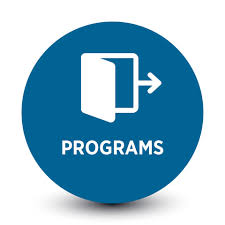[MoF] How does the budget work? #2
 •
by
•
by Ministerie van Economische Zak

Greetings, citizens of Netherlands,
continuing on our last article, we will now explore the second part of the budget - spendings. There are many ways, how governments can spend the taxpayers money, which are recorded and monitored in our Finance Sheet

MPPs - signing Mutual Protection Pacts with countries costs money, 10 000 currency per each MPP, which will last for entire month. We do not usually sign many of those, for the last few months we kept 2-4 MPPs active per month.
Donation to other ministries - while the 'EZ' org (= the org, from which this article is published) serves as the main account of Netherlands, other ministers have their own orgs as well, and plenty of government programs are administered via these other orgs - for example Flying Dutchman, The Green Berets, or Media Program. Even Ministry of Finances itself is responsible for some programs (Everyone a House!) In order to pay for the programs, ministries receive donations dedicated as part of the monthly budget. Due to the wide range of our government programs, a big part of our spendings is dedicated to spend on these programs.
DNB - our Emergency Fund for worse times (long wars, occupations, etc. ). The Law requires us to have there atleast 1 000 Gold and 1 million currency. As this criteria is satisfied, and we actually have double the amount there, sending part of our budget to DNB is not necessary at the moment.
Monetary Market - as mentioned in previous article, we have Monetary Market Program, which is generating additional income for us. However, to generate noticeable income from Monetary Market, you need to have... well, luck... but also a lot of money ready to invest to maximize your potential. And in case our reserves for investments on Monetary Market would be low, portion of budget can be dedicated to increase the size of investments available.
Other - various one-time spendings can be found in this category (e.g. subsidies for Black Friday, celebrations of national holidays, international competititons, support of good privately-ran projects, etc.)

Budget money, that are unspent during the term, create something called surplus. For the past few years, budgets were done in a way to generate zero surplus. All income was always spent on the paper. Whether through sending money to DNB (therefore doubling the necessary amount of reserves there) or to other orgs (enlarging reserves there).
It is for the debate, whether or not this way of running budgets is good or bad. On one hand, it allows us to save extra budget money for special occasions (Black Friday, or wars, which do not require usage of reserves from DN
😎, when they can be used more efficiently. On the other hand, with zero surplus and paper-only spendings, it is difficult to predict our actual state of economy and adjust our tax and monetary policies to do the best for the taxpayers without stashing too much unused money on governmental accounts.

An opinion as Minister on that issue (if you are not interested, skip ahead to the comments section).
After considerations and planning, I have decided to limit the paper-only spendings via method called "ministry budget ceilings" (more on that perhaps another time) and to run the Ministry in a way to create non-zero surpluses. If there will be some special long-term investment funds focused to benefit our country, I will support "spending" money there - but even with that, I do not plan to follow my predecessors, and "spend" the entire monthly budget every single month. Surplus must be generated to keep our economy going.
The issue is already debated in Congress as well, and though my view differs a bit from the current proposal (and I eventually would like to launch proposal of my own as Minister in charge), I believe we will be able to find agreement eventually, which will benefit both the state and citizens.

If you have any questions, please let them to be heard in the comments!









Comments
' In order to pay for the programs, ministries receive donations dedicated as part of the monthly budget.'
The MoD org received way more than needed for months. All whats leftover per month is unspend budget and should be transferred to the reserve. The current way is illegal. See debate in Congress.
It is true that the MoD org received more money than was spent during many terms. This was also the case in my term. However, during my term e.g. the financial planning was to spend 40k cc on national strikes. in reallity 17kcc or something was spent. In this example you want to see 23k cc transferred to the reserve?
Remember that the MoD org was/is used by the MoD to send money for our defense without the immediate need of the Emergency Fund. When we are not under attack or in need of extra firepower this money is used on the monetary market. e.g last month I made around 40k cc in playing the monetary market using the MoD org. You're saying this 40kcc should also be transferred to some reserve?
What is this reserve? the Emergycy fund or something else?